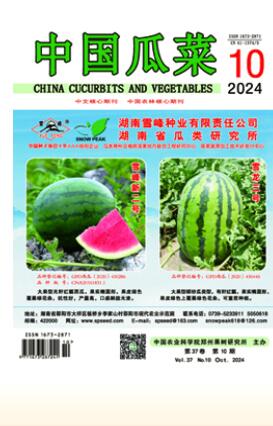Abiotic stresses.
引用次数: 76
Abstract
Abstract Numerous abiotic stresses impact yield, quality and adaptation of cucurbit crops under the diverse cultivation systems across the globe. Irrigation systems, elevation, soil type, solar radiation, wind, pathogens, fertility and genotype all interact to determine the degree to which abiotic stress may impact the crop. This chapters describes some abiotic stresses affecting cucurbit cultivation, such as cold, heat, drought, flooding, nutrient deficiencies and excesses, and salinity. Tolerance or resistance to abiotic stress factors has been documented in the germplasm of multiple cucurbit crops. Utilizing wild accessions, landraces and known resistance sources, genes for abiotic stress resistance are being identified and introgressed into cultivars with desirable fruit quality. With the new gene editing technology, it may be possible to modify these endogenous stress resistance genes to enhance their effects in the near future.非生物压力。
在全球不同的栽培制度下,众多的非生物胁迫影响着瓜类作物的产量、品质和适应性。灌溉系统、海拔、土壤类型、太阳辐射、风、病原体、肥力和基因型都相互作用,决定了非生物胁迫对作物的影响程度。本章描述了影响葫芦栽培的一些非生物胁迫,如冷、热、干旱、洪水、营养缺乏和过剩以及盐度。对非生物胁迫因子的耐受性或抗性已在多种瓜类作物种质中得到证实。利用野生品种、地方品种和已知的抗性来源,鉴定了非生物抗逆性基因,并将其渗入到具有理想果实品质的品种中。利用新的基因编辑技术,在不久的将来,有可能对这些内源性抗逆性基因进行修饰,以增强其作用。
本文章由计算机程序翻译,如有差异,请以英文原文为准。
求助全文
约1分钟内获得全文
求助全文
来源期刊
自引率
0.00%
发文量
6221
期刊介绍:
“Chinese Cucurbits and Vegetables”(CCV), formerly known as “Chinese Watermelon and Melon,” is a national technical periodical dedicated to cucurbit and vegetable research.
CCV has received the first-place award for the technology class in the fourth and fifth sessions of the national agriculture periodical Jinli Jiang. It was also recognized as a first-class periodical during the first evaluation of the quality of scientific periodicals in Henan Province in 2008.
CCV is a core Chinese science and technology periodical, according to the Chinese Science and Technology Paper Source Statistics. As reported in the 2007 China Periodical Adduction Report (Expanded Version), CCV has an impact factor of 1.356 and a direct reference rate of 1.065. Samples of the journal are available for distribution to various databases.

 求助内容:
求助内容: 应助结果提醒方式:
应助结果提醒方式:


